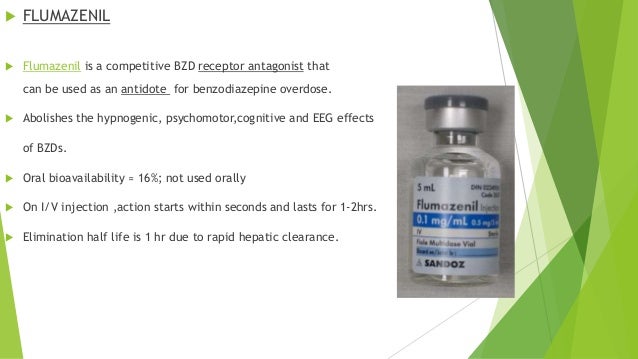


Animal models indicate that flumazenil is of some benefit in hepatic encephalopathy, but until well-designed clinical trials are conducted, hepatic encephalopathy must be considered an investigational indication for flumazenil. Flumazenil has proved useful in reversing conscious sedation in critically ill patients, although response may be dose dependent. It appears to be effective in reversing sedation induced by midazolam or diazepam, and case reports suggest that it is useful in awakening comatose patients, although its clinical utility is questionable. It improves the level of consciousness in patients with benzodiazepine overdose however, resedation may occur within one to two hours after administration, so repeated doses or a continuous infusion may be required to maintain therapeutic efficacy. Flumazenil has been studied for a variety of indications, including as an antidote to benzodiazepine overdose and for awakening of comatose patients, reversal of sedation after surgery and in critically ill patients, and management of hepatic encephalopathy. Flumazenil interacts at the central benzodiazepine receptor to antagonize or reverse the behavioral, neurologic, and electrophysiologic effects of benzodiazepine agonists and inverse agonists. The mechanism of action, pharmacokinetics, and use of flumazenil in benzodiazepine overdose, as well as in the management of other disease states, are reviewed.


 0 kommentar(er)
0 kommentar(er)
